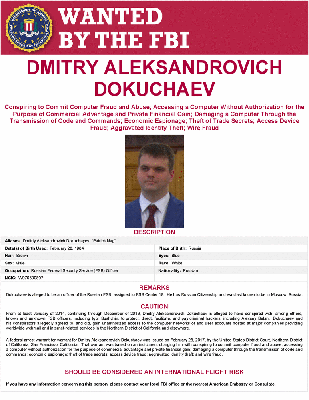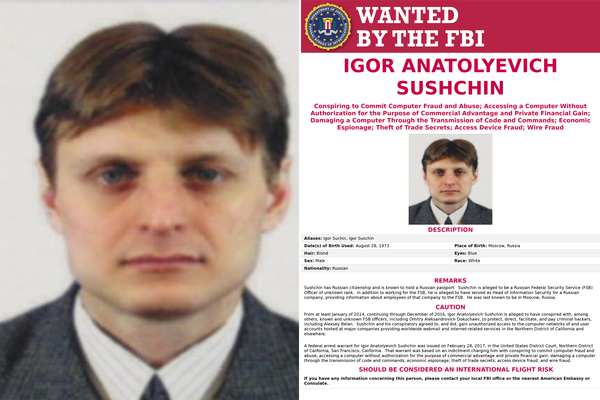Primer: If you overstay your visa for 180 days or more (but less than one year), when you depart the U.S. you will be barred from reentering the U.S. for three years. If you overstay your visa for one year or more, when you depart the U.S. you will be barred from reentering the U.S. for ten years.

Related reading: Rep. Henry Cuellar (D-TX), reports on 30 countries that refuse to take back their criminals. He appeared on CSpan and Full Measure explaining the issue. The Washington Times reports under federal law, the U.S. government can refuse to issue visas to nationals of countries that refuse to take back their citizens who have been ordered deported from the United States. But according to Cuellar, the government is not enforcing the law.
***
TruthRevolt reports in part: The Center for Migration Studies reports that “two-thirds of those who arrived in 2014 did not illegally cross a border, but were admitted (after screening) on non-immigrant (temporary) visas, and then overstayed their period of admission or otherwise violated the terms of their visas.” This is a trend, far above illegal crossings, which is anticipated to continue climbing from now on.
“That’s because, incredibly, the U.S. doesn’t have an adequate system to assure the foreigners leave when they’re supposed to,” Judical Watch reports. “This has been a serious problem for years and in fact some of the 9/11 hijackers overstayed their visa to plan the worst terrorist attack on U.S. soil. More than a decade and a half later little has changed. Securing the famously porous southern border is essential to national security but so is a reliable system that cracks down on visa overstays.”
According to the CMS study, there have been 600,000 more overstays than illegal border crossings since 2007. Mexico leads in both overstays and EWIs, or entries without inspection. Here are the breakdowns:
- California has the largest number of overstays (890,000), followed by New York (520,000), Texas (475,000), and Florida (435,000).
- Two states had 47 percent of the 6.4 million EWIs in 2014: California (1.7 million) and Texas (1.3 million).
- The percentage of overstays varies widely by state: more than two-thirds of the undocumented who live in Hawaii, Massachusetts, Connecticut, and Pennsylvania are overstays. By contrast, the undocumented population in Kansas, Arkansas, and New Mexico consists of fewer than 25 percent overstays. More here.
*** So who is responsible for control of this? ICE holds all accountability, which reports to the Department of Homeland Security. What about Congress you ask?
Check this out…
Well, there was a bill introduced in 2013, 2015 and again in January of 2017. Yup. The current bill was only introduced and has a 1% chance of passing. It is only a 2 page bill to amend current law noted as H.R. 643. This bill would make it a crime for visa overstays with defined penalties. It is the U.S. State Department, Bureau of Consular Affairs that is responsible for issuing visas and waivers in the case of denials. If you can stand reading the steps and caveats to this process, go here.
Related reading: DHS Releases Entry/Exit Overstay Report For Fiscal Year 2015
For context on how DHS under Secretary Jeh Johnson at the time packaged the report, here is a sample:
DHS conducts the overstay identification process by examining arrival, departure and immigration status information, which is consolidated to generate a complete picture of an individual’s travel to the United States. The Department identifies two types of overstays – those individuals for whom no departure has been recorded (Suspected In-Country Overstay) and those individuals whose departure was recorded after their lawful admission period expired (Out-of-Country Overstay).
This report focuses on foreign nationals who entered the United States as nonimmigrant visitors for business (i.e., B1 and WB visas) or pleasure (i.e., B2 and WT visas) through an air or sea port of entry, which represents the vast majority of annual nonimmigrant admissions. In FY 2015, of the nearly 45 million nonimmigrant visitor admissions through air or sea ports of entry that were expected to depart in FY 2015, DHS determined that 527,127 individuals overstayed their admission, for a total overstay rate of 1.17 percent. In other words, 98.83 percent had left the United States on time and abided by the terms of their admission.
The report breaks the overstay rates down further to provide a better picture of those overstays that remain in the United States beyond their period of admission and for whom CBP has no evidence of a departure or transition to another immigration status. At the end of FY 2015, the overall Suspected In-Country Overstay number was 482,781 individuals, or 1.07 percent.
Due to further continuing departures by individuals in this population, by January 4, 2016, the number of Suspected In-Country overstays for FY 2015 had dropped to 416,500, rendering the Suspected In-Country Overstay rate as 0.9 percent. In other words, as of January 4, DHS was able to confirm the departures of over 99 percent of nonimmigrant visitors scheduled to depart in FY 2015 via air and sea POEs, and that number continues to grow.
This report separates Visa Waiver Program (VWP) country overstay numbers from non-VWP country numbers. For VWP countries, the FY 2015 Suspected In-Country overstay rate is 0.65 percent of the 20,974,390 expected departures. For non-VWP countries, the FY 2015 Suspected In-Country Overstay rate is 1.60 percent of the 13,182,807 expected departures. DHS is in the process of evaluating whether and to what extent the data presented in this report will be used to make decisions on the VWP country designations.
Overall, CBP has improved the collection of data on all admissions to the United States by foreign nationals, biometric data on most foreign travelers to the United States, and processes to check data against criminal and terrorist watchlists. CBP has also made tremendous progress in accurately reporting data on overstays to better centralize the overall mission in identifying overstays. CBP will continue to roll out additional pilot programs during FY 2016 that will further improve the ability of CBP to accurately report this data.
U.S. Immigration and Customs Enforcement’s (ICE) Counterterrorism and Criminal Exploitation Unit (CTCEU) is the program dedicated to the enforcement of nonimmigrant visa violations. Each year, ICE analyzes records of hundreds of thousands of potential status violators from various investigative databases and DHS entry/exit registration systems. The goal is to identify, locate, prosecute when appropriate, and remove overstays consistent with DHS’s immigration enforcement priorities, which prioritize those who pose a risk to national security or public safety.
The Counterterrorism and Criminal Exploitation Unit prevents terrorists and other criminals from exploiting the nation’s immigration system. Really? Yup, that is what the website reads. In a hearing from 2012, you may be interested in reading the testimony on the matter of visa overstays delivered by DHS Deputy Counterterrorism Coordinator John Cohen and ICE Homeland Security Investigations Deputy Executive Associate Director Peter Edge.





